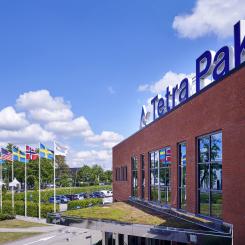“There is a strong link between climate, forests, and sustainable livelihoods,” said Sarah Price, PEFC International’s Head of Projects and Development, at Forest Day, which takes place today in connection with the Durban Climate Conference. “With about one-quarter of the world’s forests managed locally by families, communities, and indigenous peoples, it is essential that tools like forest certification are made accessible to these important stewards of the world’s forests that often depend on forest resources for their livelihoods”
By offering assurances that forests are sustainably managed, forest certification seeks to halt their unsustainable use and degradation. It also enhances their quality and the livelihoods of those who depend upon forests by connecting them to preferential markets for forest products and services ranging from carbon to timber, and ensuring benefit sharing and economic opportunities at a local level.
Yet the cost of forest certification – both direct and indirect – are often prohibitive for smallholders, which is why PEFC, the Programme for the Endorsement of Forest Certification, pioneered the Group Certification approach. Group Certification is a mechanism through which groups of small forest landholders can pool their resources and work together to achieve third-party verified sustainable forest management certification.
The project successfully completed its first phase and will move to implementation in 2012 – provided that funding is secured. The Group Certification: an Important Instrument in the Climate Change Mitigation Toolbox brochure provides further information about the project. Organizations interested in contributing to our joint efforts are urged to contact PEFC for further information.
The Expanding Group Certification Globally projectExpanding Group Certification Globally project seeks to encourage and facilitate uptake of Group Certification among small forest owners and managers throughout the world. In particular, it seeks to promote certification in those areas where it is less widespread, but where sustainable management of forests has taken on increasing urgency in light of efforts to combat climate change and alleviate poverty.
“Internationally, nearly one million small forest owners have achieved PEFC certification through the Group Certification mechanism. This number is testament that Group Certification is possible for small landholders, and that it is a powerful and cost-effective mechanism for promoting forest conservation and sustainable management,” emphasized Ms. Price.
“Experience also shows that Group Certification can stimulate and significantly contribute to improving rural livelihoods. The knock-on effects in terms of incentives to conserve and sustainably manage forests makes Group Certification an effective complement to REDD+. These benefits make Group Certification an important instrument in the climate change mitigation toolbox”, she concluded.
























































